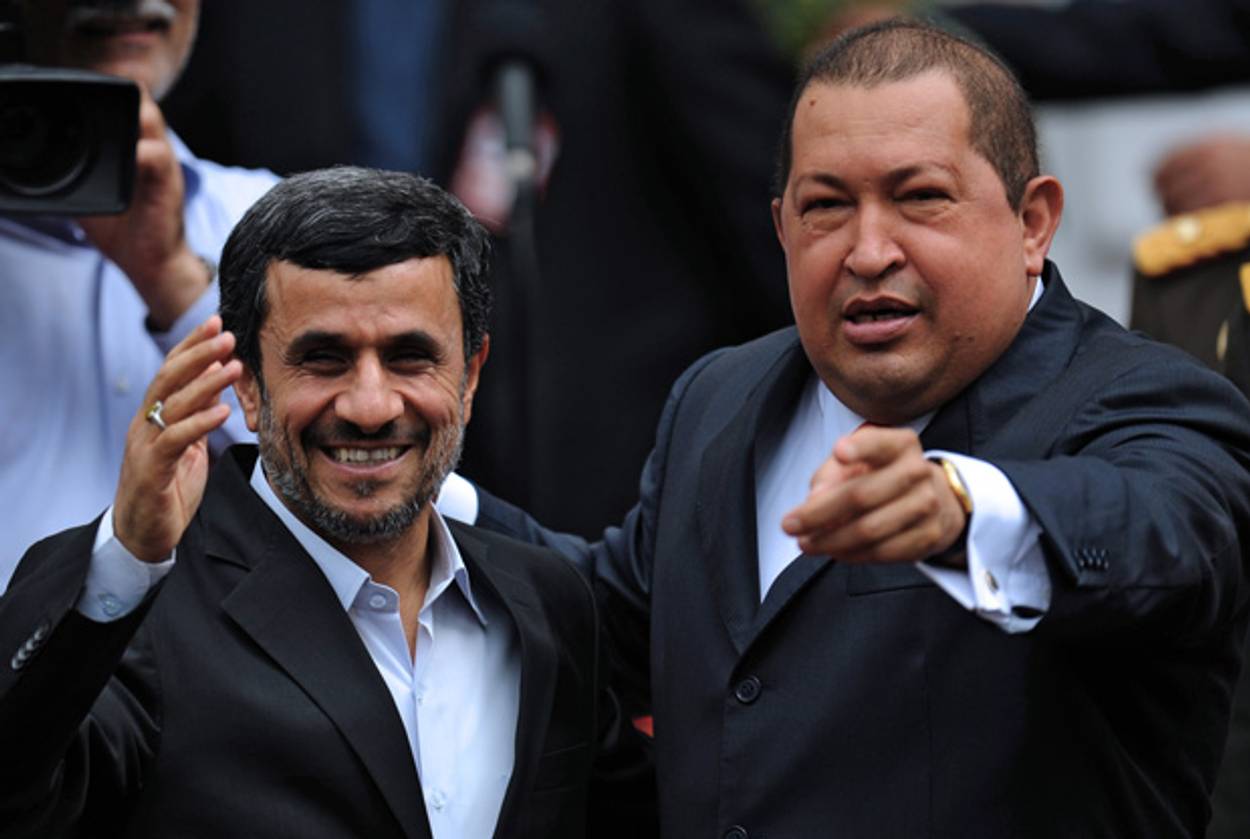The Iranian Tipping Point Approaches
A rickety economy and nuclear progress make war more likely




This was likely the week that Iran began enriching uranium at a second facility, this one deep in a mountain bunker surrounded by anti-aircraft guns. It’s the week after Iran threatened to close the Strait of Hormuz, a crucial energy shipping lane. It’s the day after yet another Iranian scientist was assassinated in Tehran. What’s coming tomorrow?
The United States and Europe’s leading countries condemned the new enrichment at the U.N. Security Council, but Russian and Chinese vetoes will likely forestall another (fifth) round of sanctions. Beyond that, the Obama administration has been putting forth slightly mixed signals. Appearing on a Sunday morning talk show, Secretary of Defense Leon Panetta took a hard line, with rhetoric to match: if Iran closes the Strait of Hormuz, “we will defeat that;” if they try to build a bomb, “they’re going to get stopped.” Yet, reflecting the most recent National Intelligence Estimate, he surmised that Iran has not yet started to develop an actual weapon. Meanwhile, a Washington Post article earlier this week created some confusion: a senior administration official was quoted as saying sanctions were intended to stoke public resentment and lead to regime change; then, this quote was changed to reflect the intention that the sanctions stoke public resentment merely in order that “the Iranian leaders realize they need to change their ways.”
The message from Iran is also mixed. The bluster likely masks panic. Closing the Strait of Hormuz would surely be the quickest way to halt Russian and Chinese protection, given the number it would do on world energy markets; it would be a pure desperation move, and so even threatening it can be seen as a desperation move, “Crazy Ivan”-style brinksmanship. The economic sanctions are slowly ruining Iran’s currency, financial system, and overall economy. In Venezuela this week, Presidents Ahmadinejad and Chávez joked, “That hill will open up and a big atomic bomb will come out.” Keep laughing, guys.
Domestically, President Obama does face some pressure to act, as the presidential campaign gears up and Republican candidates talk military action (Sens. Lindsey Graham and Joe Lieberman yesterday introduced a bill that would put the Senate on record as opposing “containment” of an Iranian nuclear bomb). Anne-Marie Slaughter suggests giving Turkey, which cut a fuel swap deal with Iran (in contravention of Western wishes) some time ago, another opportunity—limited negotiations are actually due to begin there anyway, although yesterday’s assassination may postpone them. Contributing editor Jeff Goldberg proposes that Obama make a show of giving Iran a “last chance” to seriously come to the table with the goal of coming into line with all international nuclear treaties (which it currently is violating). Such a threat should seem credible: accounts are that if it came down to choosing between a military strike and Iran’s crossing a U.S. red line in its nuclear weapons program, Obama would choose the military strike.
Iran Trumpets Nuclear Ability at a Second Location [NYT]
Iran Reports Killing of Scientist in ‘Terrorist’ Blast [NYT]
U.S., EU Slam Iran Nuclear Enrichment Activity at Security Council Meet [Haaretz]
Panetta: U.S. Will Not Allow Iran to Develop Nuclear Bomb [Haaretz]
Public Ire One Goal of Iran Sanctions, U.S. Official Says [WP]
Sanctions Begin Taking a Bigger Toll on Iran [LAT]
Slaughter: Saving Face and Peace in the Gulf [CNN]
To Avoid All-Out War Give Iran One Last Chance [Bloomberg View]
Ex-Adviser: Obama Ready to Strike to Stop Iran [Bloomberg/JPost]
Marc Tracy is a staff writer at The New Republic, and was previously a staff writer at Tablet. He tweets @marcatracy.